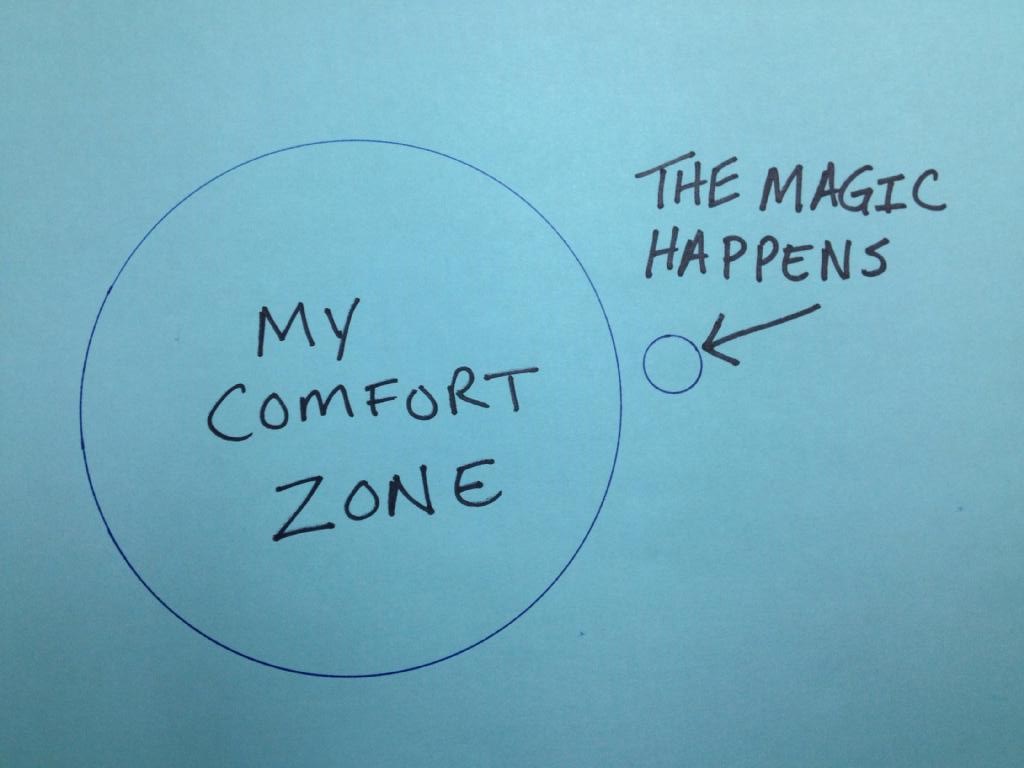
No size, no speed, and no talent pretty much sums up my high school football career. Yet, a high school football coach saw something in me that nobody else had seen until my junior year of high school. Growing up in a small East Texas town where football is king, I had always heard stories of my Father’s exploits on the local grid iron and I wanted to prove myself as the next generation of awesomeness. Yet, my physical gifts did not match my desire in the minds of most coaches. By the time a varsity opportunity came along, I wanted to make the team and prove I deserved to be there and if lucky get to play. To be honest, the chance of earning a starting position was remote.
Lee Iacocca wrote a book with a similar title in 2008 and I assure you that his take on the topic is different from the stance I am about to take. Presidential election years bring out the best and worst in our polarized society and it is a good time to reflect on the modern application of the word leadership. I am truly ashamed that the need to write this is so heavy on my heart. But alas, someone has to run grab the defibrillator and shock us back into a sense of reality. So I will be your Huckleberry!
If you are like most of us that make regular deposits into the world of knowledge through social media, we like to check and recheck and then check again to see who is reading, liking, and sharing our posts. And just when you think you have written the most amazing and insightful article or blog post, we check even more often for feedback and comments. We look into the abyss and crave that tiny bit of validation, that affirmation that what we said is indeed meaningful to the potential reader. Well crap – nothing!

Justin Timberlake proclaims that he “Can’t Stop the Feeling” and he just might be representing the same sentiment as members of your team do when it comes to work. It may be a good feeling or possibly something less desirable but the key insight is the emotion of your workplace. How exactly does it feel to work for your organization? It is an interesting question to ask. How does it feel to work at your bank? How does it feel to work at your factory? How does it feel to work at your hospital?

In the 1983 movie Never Say Never Again, Fatima Blush (I just love how that name sounds) told James Bond that she was a superior woman. At the time she was pointing a gun at well, if you saw the movie you know exactly where she was aiming. Her candid declaration of superiority supported her extreme confidence as the villainess in Ian Fleming’s masterpiece. Fatima (give me a moment to soak the name in again) represents the epitome of beauty and strength along with a slightly higher dose of human insecurity that to some degree exists in each of us. No matter how strong or beautiful one might be; there are certain needs that make us human. Most organizations are unconcerned about individual needs and this is where they are missing tremendous opportunity for talent.

I was working with a client recently and the phenomenon we all know as “Pokemon Go” came up in conversation. The IT professional in the room made a comment that really grabbed my attention. Not that I am a fan or a player of the game by-the-way. My interest in the game has been and still is more analytical than anything else. I mean really! A group of engineers walked into my class recently talking about Poke stops or whatever it is called. I am quite astonished that I am really writing about this but stay with me as I think you will find value in my interest.

Recent years of military softness to cope with millennial recruits have not changed the Marine Corps approach to basic training. I recently interviewed several Marine Corps recruiters to find out what they are seeing when it comes to the modern candidate for membership in the U.S. Marines. The Marines are currently fighting the tendencies of most military organizations to change the expectations for new members of this tribe. I was told that the Marines have not lessened the training intensity required to make young men and women into Marines as is the case in other branches of service. This approach may be having the desired impact on strengthening rather than weakening the draw of young patriots to the world of military service.

A client is doing something quite remarkable. I want to share this with you to end the week on a positive vibe. A long-term employee was recently promoted to manager from his peer group. He has been with the organization for a long time and is a natural fit for the new role. No surprises here so far. However, what the organization did next is a lesson for so many companies struggling and so many more that are severely handcuffed with mediocrity.
It is the end of the world as we know it at work. If we are not changing and adapting we are getting left behind. Today’s employee is different in so many fascinating ways. Today’s employee wants to belong to something special - a tribe at work. Seth Godin legitimized our tribal tendencies in his book “Tribes – 2008”. Today our tendency to form tribes has been enhanced by social media and a strong desire to remain connected to each other at all times. This morning I walked into a fast food chain to order a breakfast sandwich. The store was relatively empty as I was between the breakfast and lunch rush. I walked into the restroom (the door was propped open) and a store employee was standing by the door interacting on his mobile phone. When I walked up to the counter, another employee was texting on her mobile phone below the cash register as she began to take my order. These two young people belong to several tribes. Electronic tribes through social media are no less important in the moment than family and work tribes at other times. More than likely this well-known food chain has policies that prohibit such actions, yet these two were both willing to risk trouble in order to remain connected to their tribes.
Millennials and emerging Generation Zers are proving to be products of contemporary parenting styles. Parenting can certainly be complex. We all make mistakes and learn as we go. Following are the four parents we want to avoid becoming since they limit our children's chance for success when they leave the nest:
I am confused about your frequent complaints regarding the availability of talented people for your organization. You complain that good workers are difficult to find. Help me understand your position and perspective because I just cannot understand your logic. Currently, there are people on your team who do not perform, do not show up, and do not appreciate the job they are asked to complete. Yet you cannot seem to find the desire or ability to remove them from your team. What gives?
Toxic managers may be aware of their toxicity, yet they believe their past achievements and reputation are a justification for the methods they employ. This denial is common for experienced managers who have never been confronted about leadership vs. management. In other words, a marginally successful manager may be an incompetent leader. Settling for mediocrity is more common than we like to admit. Leaders fear many factors that eventually paralyze them to remove a toxic manager. Market availability of talent, location, salary, and other factors result in organizations settling for the “devil they know” rather than the one they might hire.